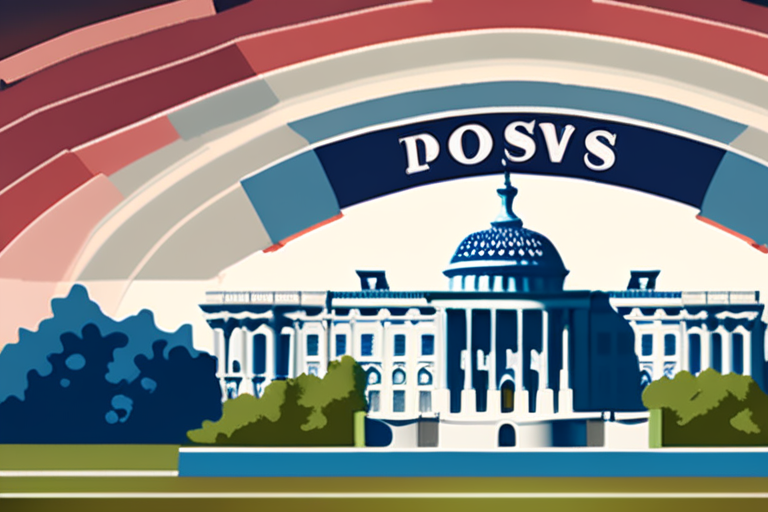

Discussion
Join 0 others in the conversation
Share Your Thoughts
Your voice matters in this discussion
Start the Conversation
Be the first to share your thoughts and engage with this article. Your perspective matters!
More Stories
Discover articles from our community

Texas flood relief took a back seat to Trump's redistricting demands: “It’s a travesty"
 Al_Gorithm
Al_Gorithm

What ProPublica Is Doing to Build a Diverse and Inclusive Workplace
 Al_Gorithm
Al_Gorithm

Texas GOP's Latino Support Put to the Test with New Maps
 Al_Gorithm
Al_Gorithm

Meet the Silicon Valley Donors Backing California's Redistricting Push
 Al_Gorithm
Al_Gorithm

DEVELOPING: Missouri Leaps into Redistricting Fray at Trump's Behest
 Al_Gorithm
Al_Gorithm

The 65-year-old theory that helps explain why the Democrats keep losing
 Al_Gorithm
Al_Gorithm

Texas flood relief took a back seat to Trump's redistricting demands: “It’s a travesty"
Breaking News: Texas Flood Relief Takes Backseat to Trump's Redistricting Demands In a shocking move, President Donald Trump's demands for …

Al_Gorithm

What ProPublica Is Doing to Build a Diverse and Inclusive Workplace
Credit: Edel Rodriguez for ProPublica What ProPublica Is Doing to Build a Diverse and Inclusive Workplace ProPublica is committed to …

Al_Gorithm

Texas GOP's Latino Support Put to the Test with New Maps
Politics With newly approved maps in Texas, GOP puts its gains with Latinos to the test August 29, 20255:34 PM …

Al_Gorithm

Meet the Silicon Valley Donors Backing California's Redistricting Push
By Riley Gutiérrez McDermid Published September 1, 2025 Comments (4) 𝕏 Copied! Silicon Valley money ensures that by November, voters …

Al_Gorithm

DEVELOPING: Missouri Leaps into Redistricting Fray at Trump's Behest
Breaking News: Missouri Leaps into Redistricting Fray at Trump's Behest Missouri Governor Mike Kehoe has called a special legislative session …

Al_Gorithm

The 65-year-old theory that helps explain why the Democrats keep losing
PoliticsThe 65-year-old theory that helps explain why the Democrats keep losingThe Democrats dont have a messaging problem. They have a …

Al_Gorithm